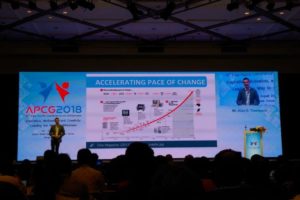Get an acceleration report for your child.
Acceleration is a strategy that allows a student to progress through school at a faster than usual rate and/or younger than typical age. It has been a proven necessity since at least 1925 (Leta Hollingworth’s study). There is documented acceleration under a different name well before this (back around the time of Socrates!).
Indeed, while I was speaking with a professor of Gifted Education recently, he remarked that his grandmother was provided with grade level acceleration in the 1940s. And yet, some schools (and particularly principals) are not open to allowing bright children to flourish through this evidence-based “allowing” of children to succeed. I liken this to torture, and I’m not alone in my assessment. Colleague and gifted advocate Bob Davidson (founder of the Davidson Institute and Davidson Academy in Nevada, catering for students in the top 0.1% of IQ) says:
“I mean, that’s criminal to send a kid [who already reads well] to kindergarten…. Somebody should go to jail for that! That is emotional torture!” – http://www.csun.edu/pubrels/clips/Aug07/08-29-07A.pdf
Acceleration has also been an ongoing discussion in both American and Australian politics. It was a core argument in two Australian Senate Committee inquiries, with reports from these finding that:
1988: “The gifted, a vital national resource, need more support at a national level… Many of the gifted will not achieve to their full potential, unless special educational provision is made for them.”
2001: “Overwhelming research evidence that appropriate acceleration of gifted students who are socially and emotionally ready usually has highly advantageous outcomes.”
These additional free resources are worth digesting. I have provided a brief quote from each to help.
“Over the last 15 years the attitudes of Australian schools towards acceleration have become much more facilitative than they were in the past. This has occurred, in no small part, because of the accessibility of A Nation Deceived with its practical guidelines on how to go about preparing, implementing and supporting acceleration for individual students.”
“Acceleration is critical to the vast majority of academically gifted children… Acceleration is educationally effective, inexpensive, and can help level the playing field…”
“Students are supportive of acceleration because of the increased stimulation, engagement, challenge and academic achievement they experience. They feel socially connected…and feel positive about themselves and their school experiences.”
“It raises the question of whether Australian school systems are prepared for geniuses and whether current structures can nurture their intelligence and provide intellectual challenges for them, or if those structures inadvertently crush them.”
“If you’re making a decision on which school to send your child to, get deeply involved. Meet the teachers. Interview the principal and staff at the school. Do they love their life, or are they stuck in a mindset from the Industrial Revolution?”
Finally…
Let me propose to you an experimental study.
Let us take a child of average intellectual ability, and when he is 5 years old, let us place him in a class of children with severe intellectual disabilities, children whose IQs are at least four standard deviations lower than his [that is, a class of children with an average IQ of 40, defined in the DSM-IV as “severe mental retardation”]. The child will stay with this group for the duration of his schooling and he will undertake the curriculum designed for the class, at the level and pace of the class.
We will carefully observe and assess at regular intervals his educational progress, his feelings about school, his social relationships with classmates, and his self-esteem. We will also observe the child’s parents and their interactions with the child’s teacher, school, and school system. They will, of course, have had no say in the child’s class or grade placement.
As one cannot generalise from a sample of one, the study will be replicated with 60 children in cities, towns, and rural and remote areas across the nation. If this proposal appalls you, rest easy. Such a study will never be undertaken. No education system would countenance it. No ethics committee would approve it.
Instead, I will report some findings from a real-life study that is ongoing and that mirrors the hypothetical study described above. This study of 60 young Australians with IQs of 160 and above is in its 22nd year, and the majority of the subjects are in their mid- to late 20s. Like the children in the hypothetical study, the majority undertook their entire schooling in classes where the average IQ was 100, at least four standard deviations below theirs. These children, and their parents, were less than happy. The education systems were unresponsive and no ethics committee raised a whisper…
– Prof Miraca Gross, Exceptionally Gifted Children. Journal for the Education of the Gifted. Vol. 29, No. 4, 2006, pp. 404–429.



